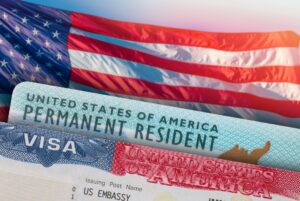You’re living in the United States on a family visa. Now, you want to extend it, but you aren’t sure how to go about it. Here’s some more information on extending your family visa, as well as information on how to get legal help for your extension.
Contact USCIS
It’s important to contact the office of the U.S. Citizenship and Immigration Services (USCIS) before doing anything. You should apply as far in advance as possible. Otherwise, you could be running up against a deadline that you won’t be able to meet. Get in touch with USCIS at least 45 days before your family visa is set to expire just to be safe. You can find the date of your visa’s expiration on Form I-94, Arrival-Departure Record. The date will be in the lower right-hand corner of this form.
Find Out Your Eligibility
When you get in touch with USCIS, you need to inquire about your eligibility to extend your family visa. As long as your visa is valid, you haven’t committed any crimes, your passport is valid and will remain so, and you haven’t violated the rules of your admission into the U.S., then you might be able to extend your visa.
Fill Out Form I-539, Application to Extend/Change Nonimmigrant Status
At least 45 days before your stay expires, fill out and send in Form I-539 to USCIS. You can file Form I-539 on USCIS’s website. If you’re applying as part of a family, then you can apply together and pay only one fee or file individually and pay a fee for each separate application.
Once you file this form, you’ll receive a notice from USCIS confirming that they have received your application. You may receive a notice for biometric services, a notice to come in for an interview, and notice informing you of their decision. You can use their fee calculator to see how much you’ll need to pay.
Types of Visas That Cannot Be Extended
USCIS lists a number of different types of visas that cannot be extended, so you’ll want to check this list before you apply.
- Visa Waiver Program
- Crew member (D nonimmigrant visa)
- In transit through the United States (C nonimmigrant visa)
- In transit through the United States without a visa (TWOV)
- Fiancé of a U.S. citizen or dependent of a fiancé (K nonimmigrant visa)
- Informant (and accompanying family) on terrorism or organized crime (S nonimmigrant visa)
What Happens If You Stay Past the Expiration Date?
If you stay past your visa’s expiration date without renewing it, you could be barred from coming to the U.S. for up to 10 years depending on the period of your overstay. You could also have your visa canceled or taken away from you.
Additionally, you’ll need to make sure to follow the guidelines of your stay as well as all the laws in the United States. Breaking the law and not following the rules could affect your visa status as well.
If you’re struggling to extend your family visa or need some more information on U.S. immigration, make sure you get in touch with a Florida immigration attorney today.
Contact a Florida Immigration Attorney
Do you have questions about extending your family visa in Florida? Then contact U.S. Immigration Law Counsel® through our website or by calling 1-800-666-4996. We deal with the government so you don’t have to. We look forward to assisting you.




